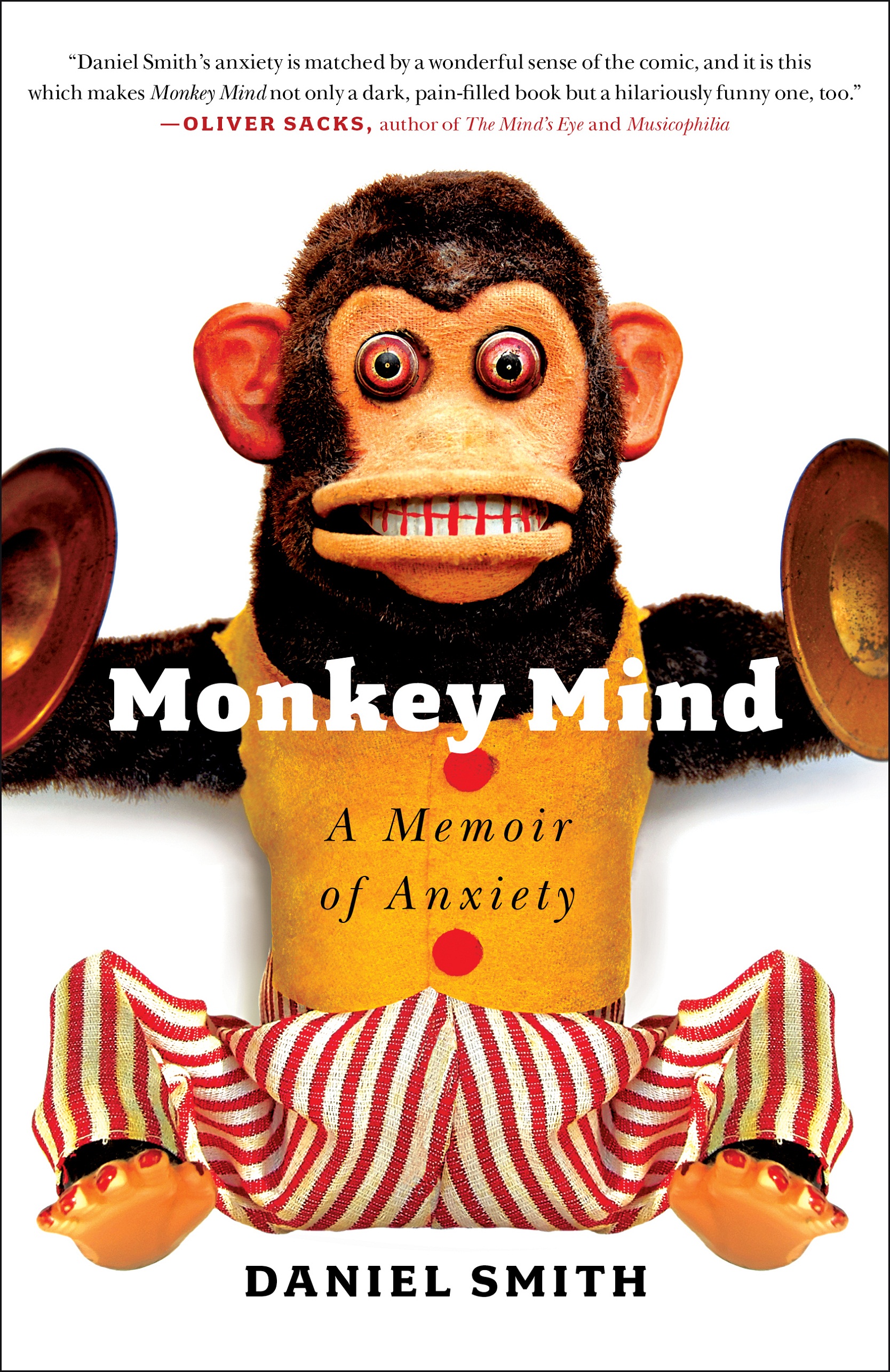Imagine this: You are at a highway rest stop grabbing a sandwich from Roy Rogers before getting back on the road. You throw on a couple of tomato slices from the toppings bar, skip the lettuce, and move on to the condiments. You pass up mustard and mayo, which brings you to a choice: ketchup or BBQ sauce? Now, these two are not all that different—both are tomato-based, either would probably go well with your roast beef sandwich. Not a big deal, really—you would probably choose in a second or two and then move on to enjoying your sandwich. Easy. Not so for Daniel Smith, author of Monkey Mind: A Memoir of Anxiety. For Smith, the scenario detailed above led to one of the most intensely anxious moments of his life.
Monkey Mind is the story of Daniel Smith’s life as he remembers it—through the lens of his serious, occasionally debilitating, anxiety disorder. The memoir reads like a journal mixed with a psychiatrist’s notebook mixed with stories swapped with friends over a few beers, all peppered with touches from a psychology textbook. Smith effortlessly blends factual information about his disorder with episodes from his own life. His tone conveys the gravity of his suffering, but with a sense of irony and self-deprecation that keeps the text feeling lighthearted. Throughout, he acknowledges the ridiculousness of his various nervous episodes, including the aforementioned “Roy Rogers Problem,” in a way that makes it OK to laugh at his struggles. The reader gets the sense that he is laughing, too, looking back, and that the writing of the book was probably healing for him in many ways. Two of my favorite lines from the book are the last couple, in which, referencing his sense of impending doom and tendency to overanalyze things to death, he says, “I was alone, the dogged architect of my own humdrum degradations. What a fool.”
I found the memoir to be humorous, informative, and very relatable. Though certainly not to the degree of Smith’s affliction, I have had my share of anxiety. I have become dizzy and panicked at the prospect of dialing the number for a phone interview. I have hyperventilated walking past a place on my college campus I associated with a traumatic memory. I have worried that the tone of an e-mail I sent at work would be misconstrued and lead to a complaint with my boss that would lead to me being fired and shamed and unemployed and homeless and ruined. His “crazy, fatalistic” trains of thought could have come straight from my own monkey mind. He was speaking to my experiences, too, and mocking them a little, which was helpful to me, in a way. He expresses so well that the anxiety sufferer, somewhere deep down, knows that the object of their obsessing is not world-ending serious stuff. But in the moment, it is.
Monkey Mind has a wonderful mixture of scenes and anecdotes; there are laugh-out-loud funny moments (like when Smith discovers that feminine pads are an excellent underarm sweat trap), moments right out of a rom-com (after an oh-so-satisfying make-up kiss with his ex, she pulls away and asks, “Are you still nuts?”), moments that will make you cry (when sixteen-year-old Smith breaks down telling his mother about a traumatic sexual experience), and moments of hard-fought triumph. This novel is for the anxiety sufferer looking for kinship and levity, for loved ones of the afflicted who are looking to understand, for the psychology buff, and for anyone who loves the irony, humor, and wit of David Sedaris.









